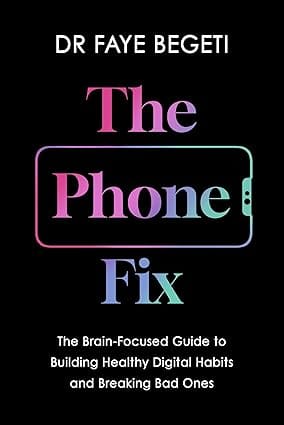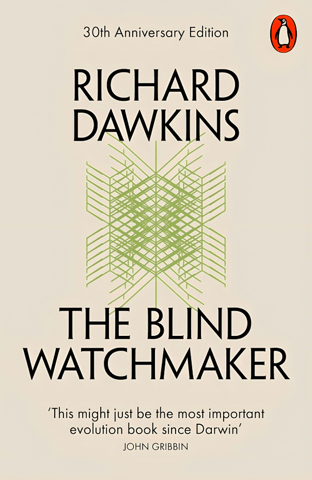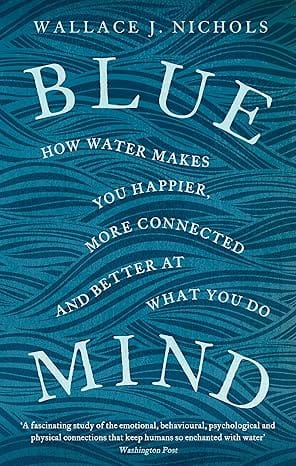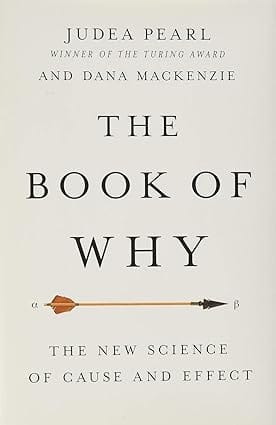- Non-ficton
- Non-ficton
- Contemporary Fiction
- Contemporary Fiction
- Children
- Children
- Comics & Graphic Novels
- Comics & Graphic Novels
- Non-Fiction
- Non-Fiction
- Fiction
- Fiction
What is really happening in your brain when you use your phone, and how to harness it.
We pick up our phones on average 80 times a day, and approximately a quarter of our waking hours are spent in front of a screen. We self-interrupt our work and social lives, forgo sleep, procrastinate important tasks and opt for digital distraction when we're bored or feel uncomfortable. Worst-case scenario, we're told phone use is melting our brains, creating a mental health epidemic and machines are taking over the world.
But how much of this is true and what can we do about it?
NHS neurology doctor and neuroscientist Faye Begeti explains the science behind why we have formed so many fixed and negative habits around our devices. She reflects on both deliberate choices and automatic behaviours, whilst also challenging myths around digital 'addiction', the harmfulness of blue light and how dopamine functions in the brain.
Rather than recommending a quick-fix digital diet or abstinence - unviable for most people and pointless given the way our brain works - The Phone Fix offers a practical guide, based on neuroscientific techniques, on building supportive digital habits. Begeti shows that technology is not inherently bad or frightening and that by better understanding what is happening in our brains, we can replenish our willpower and improve our focus, forming a healthier relationship with our phones - and therefore the people around us.
Review
Faye dilutes neuroscience into actionable and realistic strategies you can implement in your life to stop being scared of your phone and empower yourself with healthy habits for life. . . Indispensable for anyone who owns a smartphone. - Dr Martha Deiros Collado, psychologist and author of How to Be the Grown Up
My go-to book... Begeti summarises the research in this area excellently and communicates it in an engaging and accessible way. Beyond being an excellent summary of the science, it is also a highly useable handbook to help ensure your phone is helpful, not detrimental, to your life. - Dr Emma Hepburn, author of A Toolkit for Modern Life
Book Description
About the Author
- Home
- Science Technology And Medicine
- The Phone Fix
The Phone Fix
SIZE GUIDE
- ISBN: 9781035903009
- Author: Dr Faye Begeti
- Publisher: Head Of Zeus
- Pages: 320
- Format: Paperback
Book Description
What is really happening in your brain when you use your phone, and how to harness it.
We pick up our phones on average 80 times a day, and approximately a quarter of our waking hours are spent in front of a screen. We self-interrupt our work and social lives, forgo sleep, procrastinate important tasks and opt for digital distraction when we're bored or feel uncomfortable. Worst-case scenario, we're told phone use is melting our brains, creating a mental health epidemic and machines are taking over the world.
But how much of this is true and what can we do about it?
NHS neurology doctor and neuroscientist Faye Begeti explains the science behind why we have formed so many fixed and negative habits around our devices. She reflects on both deliberate choices and automatic behaviours, whilst also challenging myths around digital 'addiction', the harmfulness of blue light and how dopamine functions in the brain.
Rather than recommending a quick-fix digital diet or abstinence - unviable for most people and pointless given the way our brain works - The Phone Fix offers a practical guide, based on neuroscientific techniques, on building supportive digital habits. Begeti shows that technology is not inherently bad or frightening and that by better understanding what is happening in our brains, we can replenish our willpower and improve our focus, forming a healthier relationship with our phones - and therefore the people around us.
Review
Faye dilutes neuroscience into actionable and realistic strategies you can implement in your life to stop being scared of your phone and empower yourself with healthy habits for life. . . Indispensable for anyone who owns a smartphone. - Dr Martha Deiros Collado, psychologist and author of How to Be the Grown Up
My go-to book... Begeti summarises the research in this area excellently and communicates it in an engaging and accessible way. Beyond being an excellent summary of the science, it is also a highly useable handbook to help ensure your phone is helpful, not detrimental, to your life. - Dr Emma Hepburn, author of A Toolkit for Modern Life
Book Description
About the Author
User reviews
NEWSLETTER
Subscribe to get Email Updates!
Thanks for subscribing.
Your response has been recorded.

India's Iconic & Independent Book Store offering a vast selection of books across a variety of genres Since 1978.
"We Believe In The Power of Books" Our mission is to make books accessible to everyone, and to cultivate a culture of reading and learning. We strive to provide a wide range of books, from classic literature, sci-fi and fantasy, to graphic novels, biographies and self-help books, so that everyone can find something to read.
Whether you’re looking for your next great read, a gift for someone special, or just browsing, Midland is here to make your book-buying experience easy and enjoyable.
We are shipping pan India and across the world.
For Bulk Order / Corporate Gifting
 +91 9818282497 |
+91 9818282497 |  [email protected]
[email protected]
Click To Know More
INFORMATION
QUICK LINKS
ADDRESS
Shop No.20, Aurobindo Palace Market, Near Church, New Delhi














